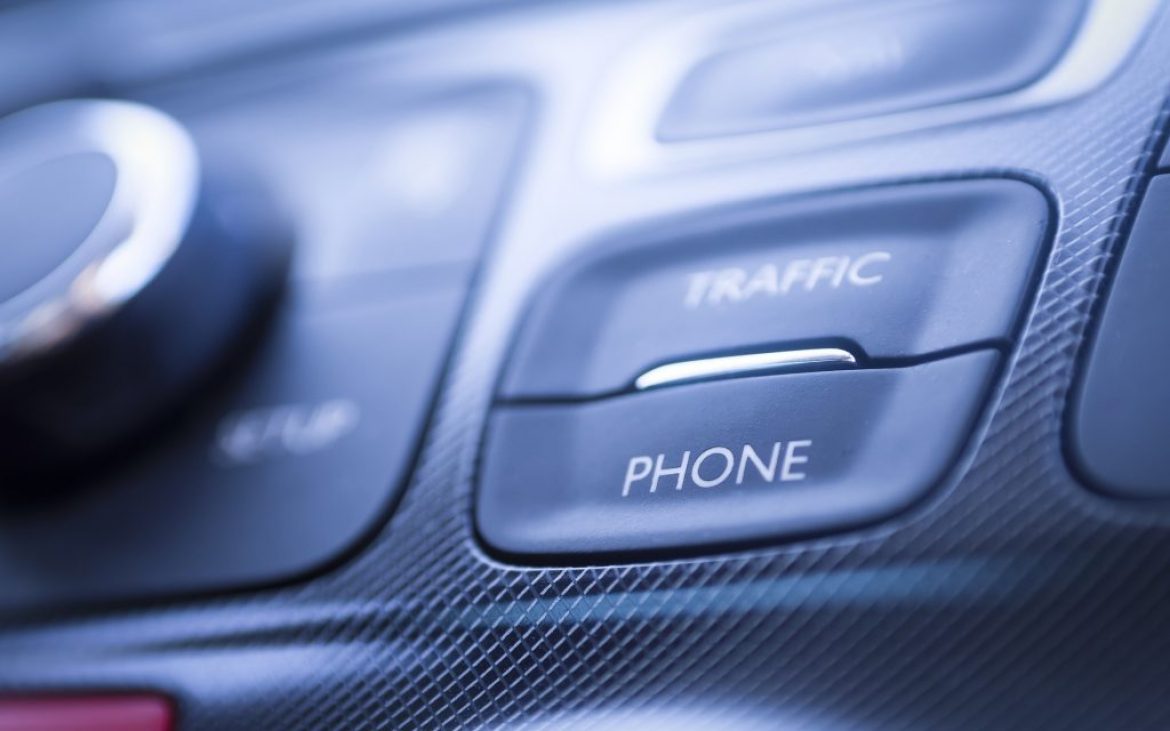Q&A With Jed Hill: Are Hands-free Devices Safer While Driving?

Jed Hill is a Macon personal injury lawyer at Buzzell, Welsh & Hill. He specializes in serious personal injury cases, workers’ compensation, wrongful death, nursing home negligence, and Social Security disability law.
It’s been a few months now since Georgia put its new “hands-free driving law” into effect. The law essentially makes it illegal to hold or support your phone while driving, meaning no texts, no calls, and no social media use unless you can do so through Bluetooth, voice commands or your car’s in-dash system. I’m glad the law passed—Georgia had to do something. Unfortunately, I just don’t think that “something” is enough.
Is Georgia’s new hands-free driving law working?
There are some promising numbers from the Georgia Department of Transportation that traffic fatalities are down so far compared to last year. That’s good news, though there’s likely more at play than just the new law.
From my everyday experience, though, I have major concerns. Sitting at red lights, I try to notice what other drivers are doing, and I still see a tremendous number of folks looking down in their laps. They’re aware of the law and they’re trying to keep the phone out of plain sight. That’s definitely not distraction-free driving! I’ve also yet to speak with anyone who’s actually been pulled over for breaking the law.
What about for people who are following the law and using hands-free devices while driving? Is it any safer?
No one likes to imagine someone typing out a text while driving down the highway. But is dictating a text really much better? The law doesn’t address the psychological element of distracted driving. You still break your concentration for a phone call or a dictated message. The danger is still there anytime your attention is diverted from the road.
But why do automakers put hands-free options in cars if it is not safe to use hands-free devices while driving?
More and more distractions are being integrated into our cars every day. People feel complacent believing that “hands-free” means safe. After all, it’s legal, right? That sends the wrong message to not only drivers but automakers, too. We’re demanding the latest and greatest gadgets in our vehicles, so carmakers are willing to add in anything that makes it easier to stay connected.
Ultimately, we’ll need some regulation to make sure these technologies are designed and used in a safe manner. Automakers could make in-dash systems only operable when the car is stopped. Once the vehicle is in motion, the device is disabled. Vehicles are absolutely getting safer, with features like forward-collision avoidance systems. But while that may save you from rear-ending someone this week, fiddling with your Bluetooth will make you run a red light the next. I’m not convinced the communication technologies aren’t just counteracting all the positive new safety features.
What should I do to avoid driving distracted?
My suggestion is to turn your phone off when you get in a vehicle. Period. It’s hard to do. I have a hard time doing it. But it’s the only way to really avoid those distractions on the road. It’s also so important to talk about how dangerous distracted driving can be—especially with kids and teens. I have two young girls who are 8 and 10, and the last thing I’d do is check a text or read an email with my daughters in the car. I want them to see me turn my phone off and put it in the console. And in those situations when I forget to turn it off and it’s ringing, they know that it’s illegal for me to pick it up and answer because we’ve had discussions in our household.
If you’ve been injured by a distracted driver, you need a personal injury attorney. The Macon car accident lawyers at Buzzell, Welsh & Hill will help ensure you get the compensation you deserve. Contact us for a free consultation today.
